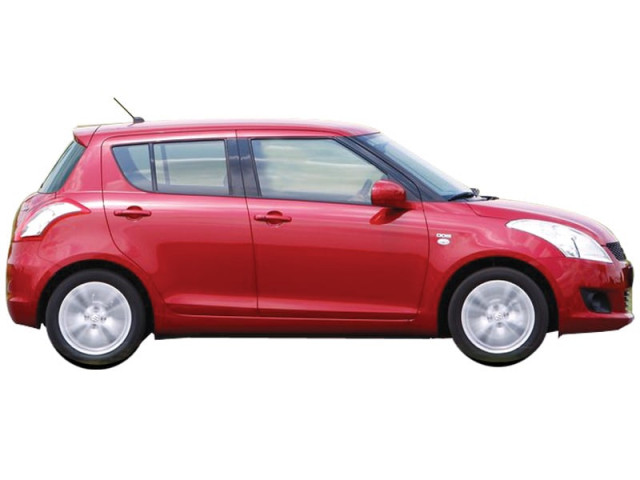431 cars sold each day in fiscal 2012
Automobile sector witnesses best business year since fiscal 2008.

431 cars sold each day in fiscal 2012
The automobile sector sold 431 cars on an average each day in fiscal 2012, an increase of 11% over the previous year.
Overall sales stood at a four-year high of 157,325 units in fiscal 2012 compared with the preceding year’s 127,944, according to data released by the Pakistan Automotive Manufacturers Association on Thursday.
The year’s first boost came in the budget when the government removed special excise duty of 2.5% on imported and manufactured vehicles coupled with reduction of general sales tax to 16% from 17%.
The second turbocharger was the yellow cab scheme offered by the Punjab government. The provincial government aimed to deliver 7,500 cabs to successful applicants during July to December 2011.
Toyota Corolla kept the throne of the country’s largest selling car with 46,207 units followed by Suzuki Mehran with 35,131 units.
The year also saw an end to the journey of Daihatsu Coure and Suzuki Alto. Indus Motor felt the new global model of Coure was not feasible cost-wise to assemble in Pakistan while Pak Suzuki followed its parent company’s decision of pulling the plug on the Alto.
Company-wise
Pak Suzuki Motor Company was the prime beneficiary of the taxi scheme and witnessed the highest growth of 46% on a yearly basis.
Mehran and Bolan – the two vehicles used in the taxi scheme – witnessed an impressive growth of 46% and 69%, respectively.
Swift, the latest addition to the family, also gained traction and sold 7,040 units against the preceding fiscal year’s 4,080 units.
Indus Motor Company witnessed 6% growth led by Toyota Corolla and Hilux. New variants of Corolla launched by the company and introduction of CNG-fitted vehicles acted as a catalyst in this growth.
Diahtsu Cuore’s sales plummeted to 3,857 units while the company’s plant stopped production for good in May.
Honda Atlas witnessed a year to forget. The luxury car assembler sales plummeted due to problems in its supply chain since October because of floods in Thailand from where parts are imported and then locally assembled.
The company’s production plant in Lahore was shut for three months straight during the financial year.
The company’s high-end variant Civic sales plummeted to 4,977 units compared with 6,365 while City sales fell to 7,142 units against last year’s 9,121 units.
Overall strong growth was seen in volumetric sales and improved margins on account of stable rupee against the Japanese yen which is expected to bode well for the sector’s profitability.
The year ahead
Business is expected to slowdown in the current financial year amid lower allocation to the cab scheme this year and stiff competition from imports.
All three are also going for a price hike to start the financial year. Suzuki has increased prices by an average Rs35,000 from June 12, 2012, while Indus Motor raised prices by an average Rs60,000 on June 26, 2012 on account of conversion to Euro II compliance and steep depreciation of the rupee.
Published in The Express Tribune, July 13th, 2012.



















COMMENTS
Comments are moderated and generally will be posted if they are on-topic and not abusive.
For more information, please see our Comments FAQ